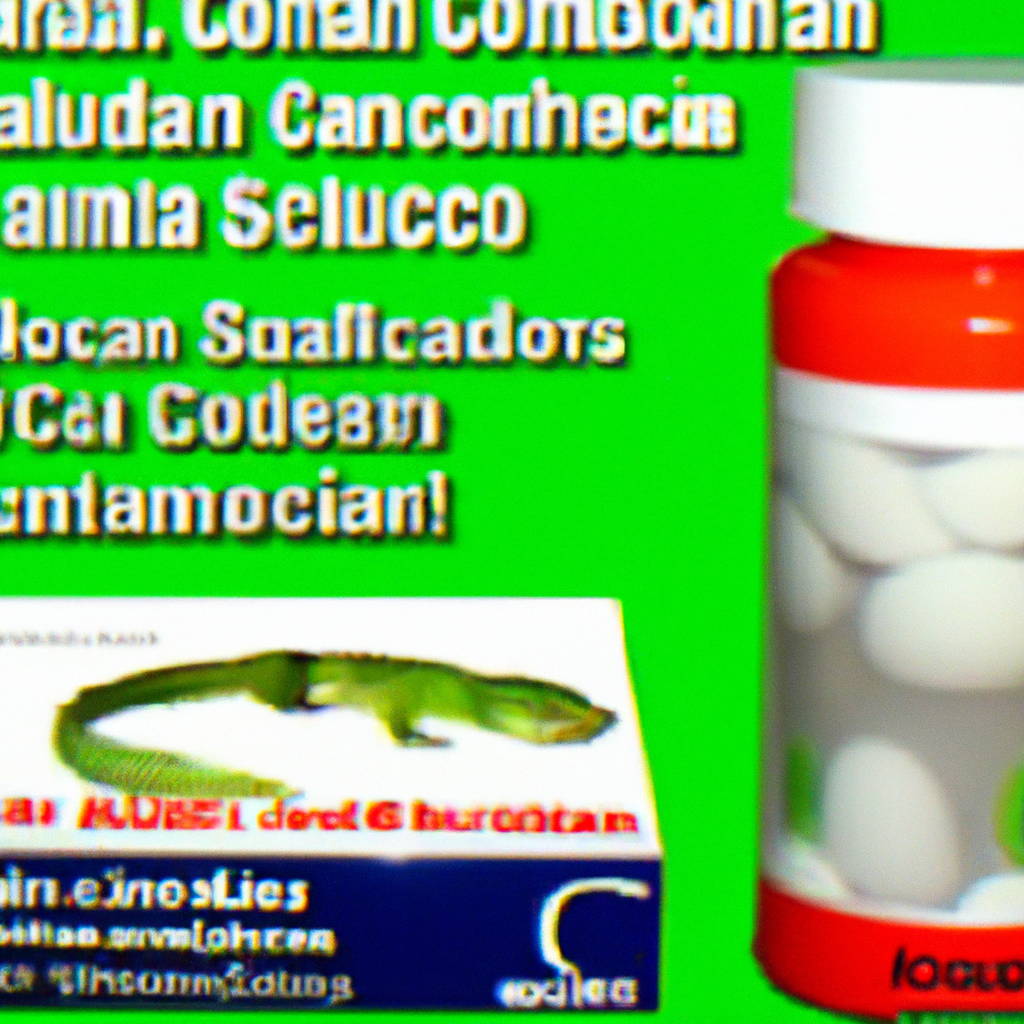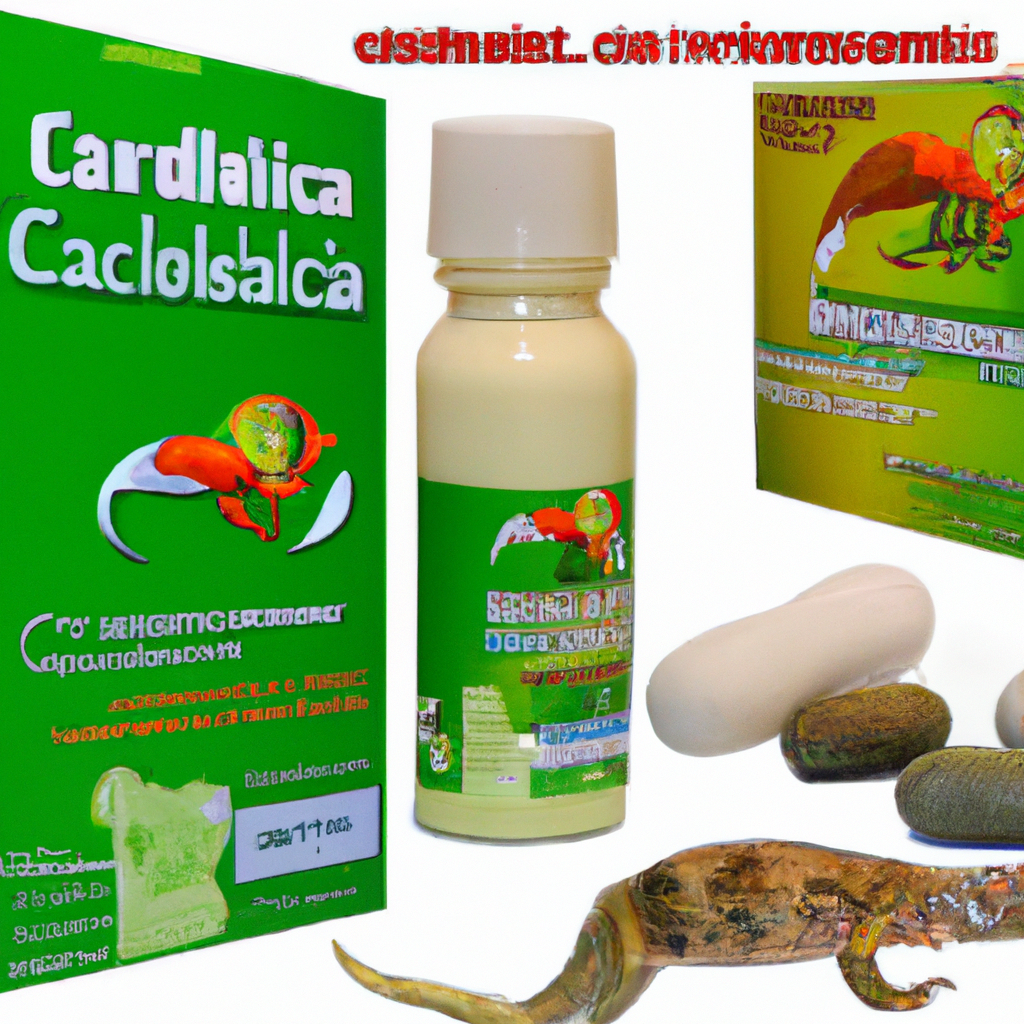Hey there! Are you a reptile enthusiast looking to provide your scaly friends with the best care possible? Well, we’ve got just the thing for you – calcium supplements for reptiles! Reptiles, just like humans, need a balanced diet to stay healthy and thrive. These supplements are specially formulated to provide your snakes, turtles, and lizards with the essential calcium they need to maintain strong bones and overall well-being. In this article, we’ll explore the importance of calcium for reptiles and how these supplements can be an excellent addition to their diet. So, let’s get ready to learn more about the fascinating world of calcium supplements for reptiles!

Importance of Calcium for Reptiles
Calcium is an essential nutrient for reptiles, playing a crucial role in their overall health and well-being. Reptiles require calcium for numerous physiological processes, including muscle contraction, nerve function, and the formation of strong bones and shells. Without sufficient calcium, reptiles are at risk of developing a condition called calcium deficiency, which can lead to a range of health problems. Therefore, ensuring that your reptile receives adequate calcium is of utmost importance.
Calcium Deficiency in Reptiles
Calcium deficiency, also known as hypocalcemia, is a common condition among reptiles. It occurs when there is an imbalance between the intake and utilization of calcium within the reptile’s body. Reptiles that do not receive enough calcium through their diet or have difficulty in absorbing and metabolizing calcium are particularly at risk. Inadequate calcium levels can result in weak bones, shell deformities, muscle twitches or tremors, and even seizures. If left untreated, calcium deficiency can lead to severe health complications and even death.
Calcium Metabolism in Reptiles
To fully understand the importance of calcium for reptiles, it is essential to grasp how calcium metabolism works in their bodies. Reptiles, unlike mammals, have a unique calcium metabolism that is strongly influenced by several factors, including UVB light exposure and temperature. Calcium is primarily absorbed through the reptile’s intestines, and its absorption is facilitated by vitamin D3, which is typically produced in the reptile’s skin when exposed to UVB light. Once absorbed, calcium is stored in the reptile’s bones and released into the bloodstream as needed. This complex metabolism highlights the significance of providing reptiles with appropriate calcium supplementation.
Common Signs of Calcium Deficiency
Identifying the signs of calcium deficiency in reptiles is crucial for prompt intervention. While the specific symptoms may vary depending on the reptile species, some common signs of calcium deficiency include weakness, lethargy, poor appetite, difficulty in walking or climbing, bone or shell deformities, and trembling or twitching muscles. If you observe any of these symptoms in your reptile, it is vital to consult a reptile veterinarian immediately for a proper diagnosis and treatment.

Choosing the Right Calcium Supplement
Selecting the right calcium supplement for your reptile is essential to ensure adequate calcium intake. Consider the following factors when choosing a calcium supplement:
Calcium Source
When choosing a calcium supplement, look for one derived from a high-quality calcium source. The most commonly used calcium sources for reptiles include calcium carbonate, calcium gluconate, and calcium citrate. These sources are easily absorbed by reptiles and provide the necessary calcium for their optimal health.
Calcium to Phosphorus Ratio
Maintaining a proper calcium to phosphorus ratio is crucial for reptiles, as an imbalance can negatively affect calcium absorption and utilization. The ideal calcium to phosphorus ratio for most reptiles is 2:1, which ensures that calcium is effectively absorbed and utilized by the reptile’s body. Therefore, choose a calcium supplement that provides an appropriate calcium to phosphorus ratio.
Vitamin D3 Content
Vitamin D3 is vital for calcium absorption in reptiles, as it helps convert the ingested calcium into a form that the reptile’s body can utilize. Since reptiles primarily produce vitamin D3 through UVB light exposure, it is essential to consider the vitamin D3 content in the calcium supplement. Choose a supplement that contains an adequate amount of vitamin D3 or consider providing your reptile with UVB lighting to promote natural production of this vital vitamin.
Other Essential Nutrients
While calcium is critical for reptile health, it is also essential to consider other essential nutrients that may be present in calcium supplements. Some reptile-specific calcium supplements may contain additional vitamins and minerals that support overall health, such as vitamin A, vitamin C, and trace minerals like zinc and selenium. These additional nutrients can contribute to a well-rounded supplementation regimen for your reptile.
Different Forms of Calcium Supplements
calcium supplements for reptiles are available in various forms, each with its advantages and considerations. Here are some common forms of calcium supplements:
Calcium Powder
Calcium powder is one of the most popular and convenient forms of calcium supplementation for reptiles. It can be sprinkled on the reptile’s food, making it easy to ensure they receive the recommended amount of calcium. Calcium powder is typically odorless and tasteless, making it suitable for most reptiles’ preferences. Additionally, calcium powder usually contains other essential vitamins and minerals, providing a comprehensive supplementation approach.
Calcium Liquid
For reptiles that may have difficulty consuming powdered forms, calcium liquid is an effective alternative. Calcium liquid can be mixed with the reptile’s drinking water or sprayed onto their food. It offers a convenient way to ensure calcium intake, particularly for reptiles that are picky eaters or have dietary restrictions. However, it is important to follow dosage guidelines and ensure the liquid is adequately mixed with the reptile’s food or water to avoid under- or over-supplementation.
Calcium Blocks or Cuttlebones
Calcium blocks or cuttlebones are natural calcium sources that can be placed in the reptile’s enclosure for them to nibble on as needed. These products provide a slow-release source of calcium and can be particularly beneficial for reptiles that enjoy gnawing or chewing. However, it is important to monitor the reptile’s calcium intake when relying solely on blocks or cuttlebones, as they may not provide enough supplementation for reptiles with higher calcium requirements.

Administration of Calcium Supplements
To ensure optimal calcium supplementation, it is important to consider proper dosage, frequency of administration, and methods of administration. Here are some guidelines to follow:
Dosage Guidelines
The recommended calcium dosage for reptiles can vary depending on the species, age, and specific health needs. It is crucial to consult a reptile veterinarian or refer to reputable sources to determine the appropriate dosage for your reptile. Over-supplementation can be as harmful as calcium deficiency, so it is important to find the right balance.
Frequency of Administration
The frequency of calcium supplementation depends on the reptile’s age, reproductive status, and individual health requirements. Young reptiles and those in reproductive stages may require more frequent calcium supplementation compared to adults. Generally, calcium supplements should be provided at least once or twice a week, but your reptile’s specific needs should be taken into account.
Methods of Administration
Calcium supplements can be administered through various methods, including dusting the reptile’s food with powdered supplements, mixing liquid supplements with water or food, or providing calcium blocks or cuttlebones for them to consume as desired. Explore different methods to find the one that works best for your reptile and ensures proper intake of calcium.
Calcium Supplements for Specific Reptile Species
Different reptile species have varying calcium requirements, so it’s important to understand the specific needs of your reptile. Here are some considerations for calcium supplementation in popular reptile species:
Calcium Supplements for Turtles
Turtles, known for their hard shells, require adequate calcium to maintain the strength and integrity of their shells. Calcium supplementation is particularly vital for growing turtles, as their shells are developing rapidly. Consider using calcium powder or liquid specifically formulated for turtles and adjust the dosage according to their age and size.
Calcium Supplements for Bearded Dragons
bearded dragons, popular pet reptiles, have high calcium requirements throughout their lives. It is crucial to provide them with a calcium supplement that includes vitamin D3, as they are unable to produce sufficient amounts without proper UVB light exposure. Calcium powder or liquid designed for bearded dragons is readily available and should be given regularly as part of their diet.
Calcium Supplements for Geckos
Geckos, with their unique ability to climb walls and tale regeneration capabilities, also require calcium supplementation to support healthy bone structure. Many gecko-specific calcium supplements are available in powdered form, allowing for easy dusting onto their prey or mixing with their food. It is essential to assess the individual needs of your gecko and consult a reptile veterinarian for appropriate supplementation recommendations.

Potential Risks and Considerations
While calcium supplementation is essential for reptile health, there are some potential risks and considerations to be aware of:
Overdosing on Calcium
Over-supplementation of calcium can lead to a condition known as hypercalcemia, which occurs when there is an excessive amount of calcium in the reptile’s body. This can cause serious health complications, including poor appetite, kidney damage, and even death. It is crucial to follow recommended dosage guidelines and avoid over-supplementation.
Interactions with Other Medications or Supplements
Certain medications, such as antacids or antibiotics, may interfere with calcium absorption in reptiles. Additionally, there may be interactions between calcium supplements and other vitamin or mineral supplements. To ensure the effectiveness of calcium supplementation and prevent any potential negative interactions, consult a reptile veterinarian before introducing new medications or supplements to your reptile’s routine.
Consulting a Reptile Veterinarian
When it comes to the health and well-being of your reptile, it is always advisable to consult a reptile veterinarian. They can provide guidance tailored to your reptile’s specific needs and help create an appropriate calcium supplementation plan. Regular veterinary check-ups are also important to monitor your reptile’s overall health and ensure that calcium levels remain within the optimal range.
Conclusion
In conclusion, calcium is a vital nutrient for reptiles, with a significant impact on their overall health and well-being. Calcium deficiency can lead to severe health complications, emphasizing the need for proper calcium supplementation. By choosing the right calcium supplement, administering it correctly, and understanding the specific needs of your reptile species, you can ensure they receive the necessary calcium for optimal health. Remember to consult a reptile veterinarian for personalized advice and to address any concerns regarding calcium supplementation. With proper care and attention to calcium intake, you can help your reptile thrive and enjoy a long and healthy life.

